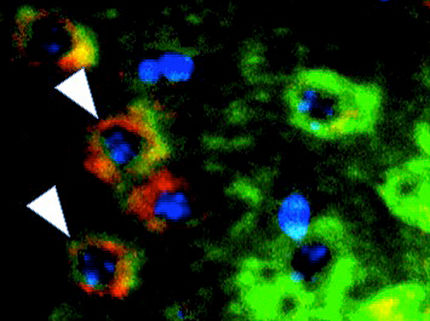TYSABRI Demonstrates Significant Health-Related Quality-of-Life Improvements for Multiple Sclerosis Patients
Biogen Idec and Elan Corporation, plc announced the publication of results demonstrating that patients treated with TYSABRI(R) (natalizumab) showed a significant improvement in health-related quality-of-life (HRQoL) measures when compared to placebo. These results are from the first Phase III multiple sclerosis (MS) studies that have demonstrated improvement on HRQoL measures in patients with relapsing forms of MS. The results have been published in Annals of neurology.
"These data showed that patients treated with TYSABRI were more likely to experience statistically important improvement in the quality-of-life measures used to assess meaningful disease improvement or progression. These findings have not been previously observed in clinical studies involving MS patients," said Richard Rudick, MD, Director of the Mellen Center for Multiple Sclerosis Treatment and Research at the Cleveland Clinic, the lead investigator of the study.
These two-year, randomized, double-blind, placebo-controlled, multicenter, Phase III clinical trials (AFFIRM and SENTINEL) were conducted in 2,113 patients with relapsing forms of MS. The objective was to assess the relationship between disease activity and HRQoL in relapsing forms of MS, and the impact of TYSABRI on these measures.
Results from the AFFIRM monotherapy trial include:
- A statistically significant improvement in SF-36 PCS beginning at week 24 and all subsequent time points compared with a decline in the placebo-treated group.
- A statistically significant improvement in SF-36 MCS at week 104 compared with a decline in the placebo-treated group.
- Statistically significant benefits using the VAS when compared with placebo at week 52 and at week 104.
- Patients showed sustained improvement from baseline quality-of-life measures, not just a slowing down of quality-of-life deterioration.
- HRQoL measures correlated with common measures of MS severity, including EDSS, sustained disability progression, relapse number, MSFC and volume of T2-hyperintense and T1-hypointense lesions..
Most read news
Other news from the department research and development

Get the life science industry in your inbox
By submitting this form you agree that LUMITOS AG will send you the newsletter(s) selected above by email. Your data will not be passed on to third parties. Your data will be stored and processed in accordance with our data protection regulations. LUMITOS may contact you by email for the purpose of advertising or market and opinion surveys. You can revoke your consent at any time without giving reasons to LUMITOS AG, Ernst-Augustin-Str. 2, 12489 Berlin, Germany or by e-mail at revoke@lumitos.com with effect for the future. In addition, each email contains a link to unsubscribe from the corresponding newsletter.























































